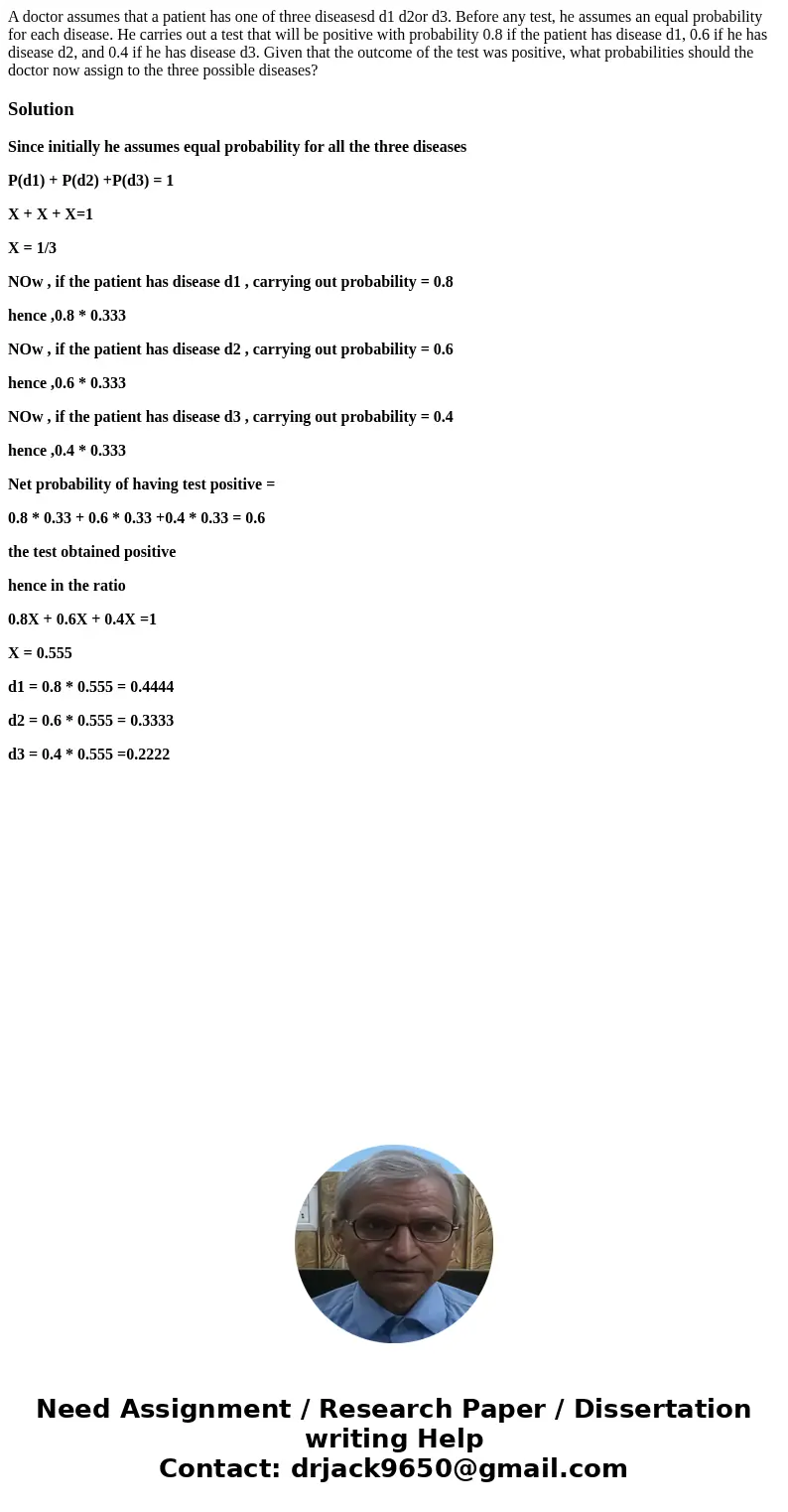A doctor assumes that a patient has one of three diseasesd d
A doctor assumes that a patient has one of three diseasesd d1 d2or d3. Before any test, he assumes an equal probability for each disease. He carries out a test that will be positive with probability 0.8 if the patient has disease d1, 0.6 if he has disease d2, and 0.4 if he has disease d3. Given that the outcome of the test was positive, what probabilities should the doctor now assign to the three possible diseases?
Solution
Since initially he assumes equal probability for all the three diseases
P(d1) + P(d2) +P(d3) = 1
X + X + X=1
X = 1/3
NOw , if the patient has disease d1 , carrying out probability = 0.8
hence ,0.8 * 0.333
NOw , if the patient has disease d2 , carrying out probability = 0.6
hence ,0.6 * 0.333
NOw , if the patient has disease d3 , carrying out probability = 0.4
hence ,0.4 * 0.333
Net probability of having test positive =
0.8 * 0.33 + 0.6 * 0.33 +0.4 * 0.33 = 0.6
the test obtained positive
hence in the ratio
0.8X + 0.6X + 0.4X =1
X = 0.555
d1 = 0.8 * 0.555 = 0.4444
d2 = 0.6 * 0.555 = 0.3333
d3 = 0.4 * 0.555 =0.2222

 Homework Sourse
Homework Sourse